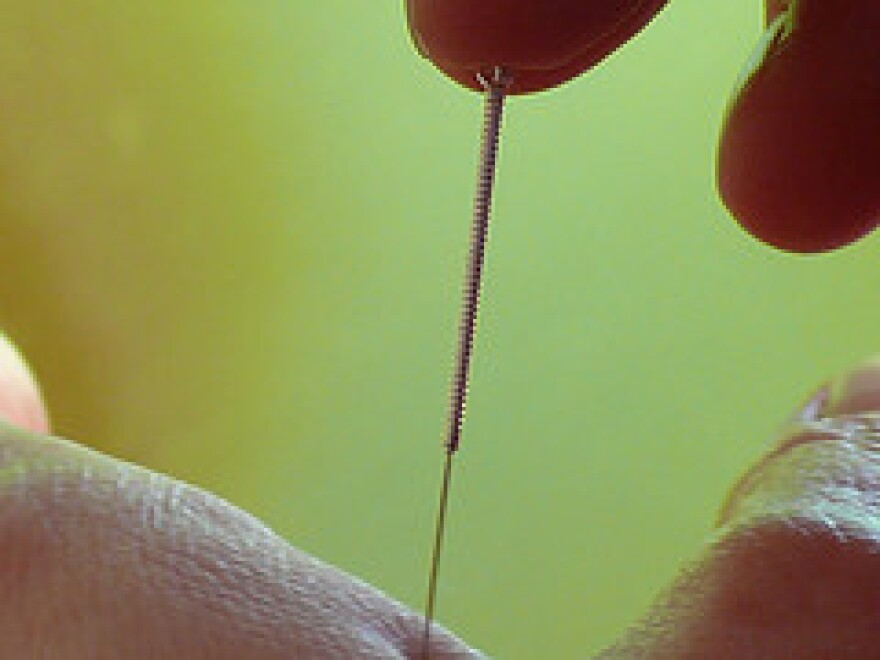After more than 30 years in the medical field KUNC commentator Dr. Marc Ringel has found that where the patient is concerned sometimes you have to strike a balance between your skepticism and tried and true practices.
Skeptical youth that I was, I once asked a minister about the absurdity of prayer if there were no God. To which he responded, “Yes, but isn’t it wonderful to do something absurd with such big heart?”
That’s sort of how I feel about acupuncture. Based on the medical science that I’ve spent a lifetime studying and practicing, acupuncture makes hardly any sense at all. Which is why I’ve referred a number of patients to acupuncturists as well as consulted one for some of my own maladies.
It’s sometimes a wonderful option for a patient who’s stumped me to send her to a practitioner of a Chinese discipline that is at least 2000 years old. Acupuncture is based on Qi, the energy whose flow along specific channels under the skin called meridians, is redirected and rebalanced with strategically placed needles.
The western doctor in me cannot come close to matching my faith in acupuncture meridians, which have never really been seen by naked eye or microscope, with my faith in the anatomy that I learned in cadaver lab.
I love acupuncture because it helps people. That I don’t understand it actually adds to the attraction.
Two studies published this month in the British Journal of General Practice demonstrate the value of this ancient healing art in just the sort of patient I usually refer to an acupuncturist. For the purpose of the study, these people were labeled “frequent attenders with medically unexplained symptoms.”
The project followed 80 adults who had consulted their general practitioners at least 8 times in the previous year with complaints, almost 2/3 of them musculoskeletal, that had yielded neither a firm diagnosis nor an effective treatment.
Then the subjects received 12 or more standard acupuncture treatments over the course of 6 months. Afterward, the vast majority reported increased physical and/or mental energy, as well as feeling greater self-control, calmness, and relaxation. Only three patients said they were worse.
Why did such an unorthodox treatment work for these challenging patients where primary care doctors, multiple other medical specialists, and physical therapists had struck out?
The authors interviewed 20 of the subjects in depth about their experience with acupuncture treatment. These patients said that, at first, the consultation struck them as “just another referral,” one more among many others that had helped little to none. Soon they realized that practitioners of traditional Chinese medicine were different. It dawned on these suffering people that they were in the presence of a caring professional who listened and responded to them as a whole person.
Such an approach encouraged patients to take an active role in changing their thinking and their lifestyle, an integral part of making their medically unexplained symptoms better.
What happened here? Did these challenging patients get better because the acupuncturist rebalanced their Qi? Or was the critical factor the accepting attitude and expectation of self-efficacy on the part of the practitioner? Perhaps it was a placebo effect, with improvement of symptoms occurring because the elaborate rigamarole of acupuncture diagnosis and treatment created the expectation of getting better.
I suspect the answer is “all of the above.” We still do not have the research chops to distinguish convincingly between the specific efficacy of a healing system based on other than western scientific principles and the general efficacy of compassionate listening and expecting the best.
And, you know what? So long as the patient gets better, I don’t care why he does. In the meantime, isn’t it wonderful to do something absurd with such big heart?



